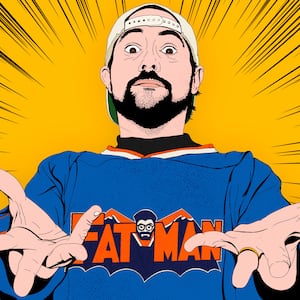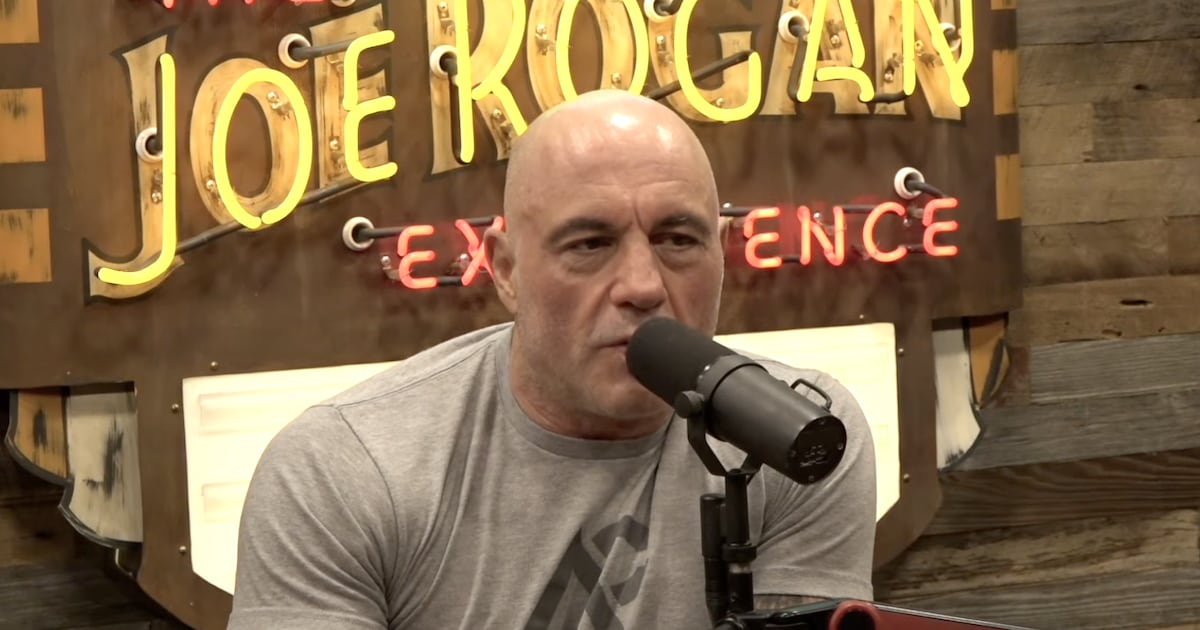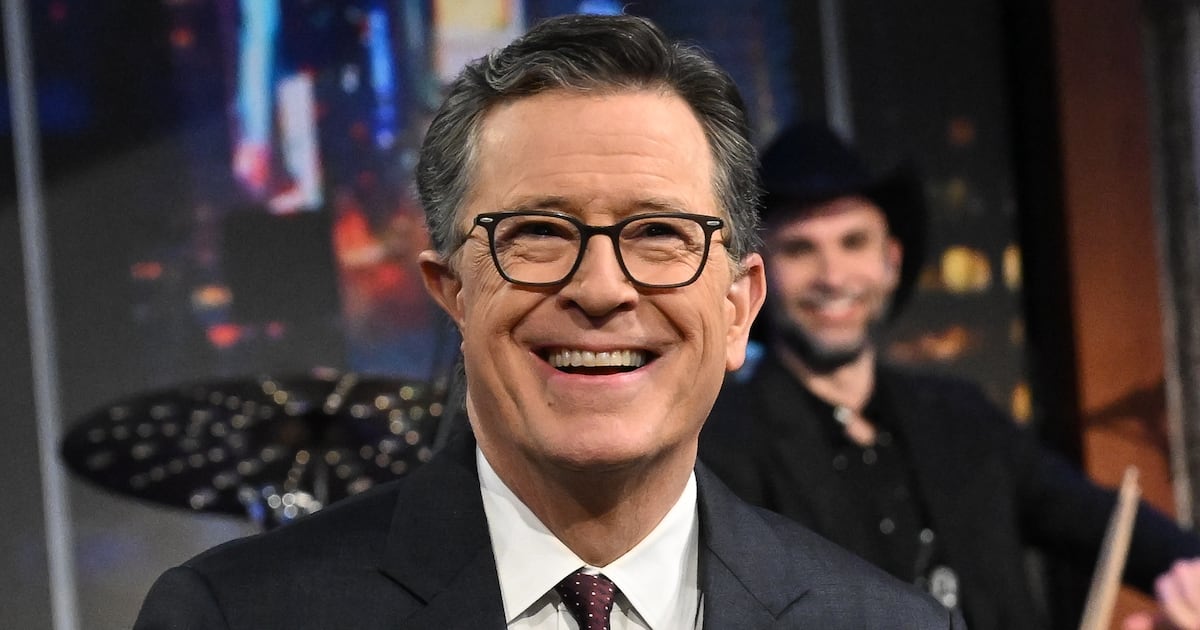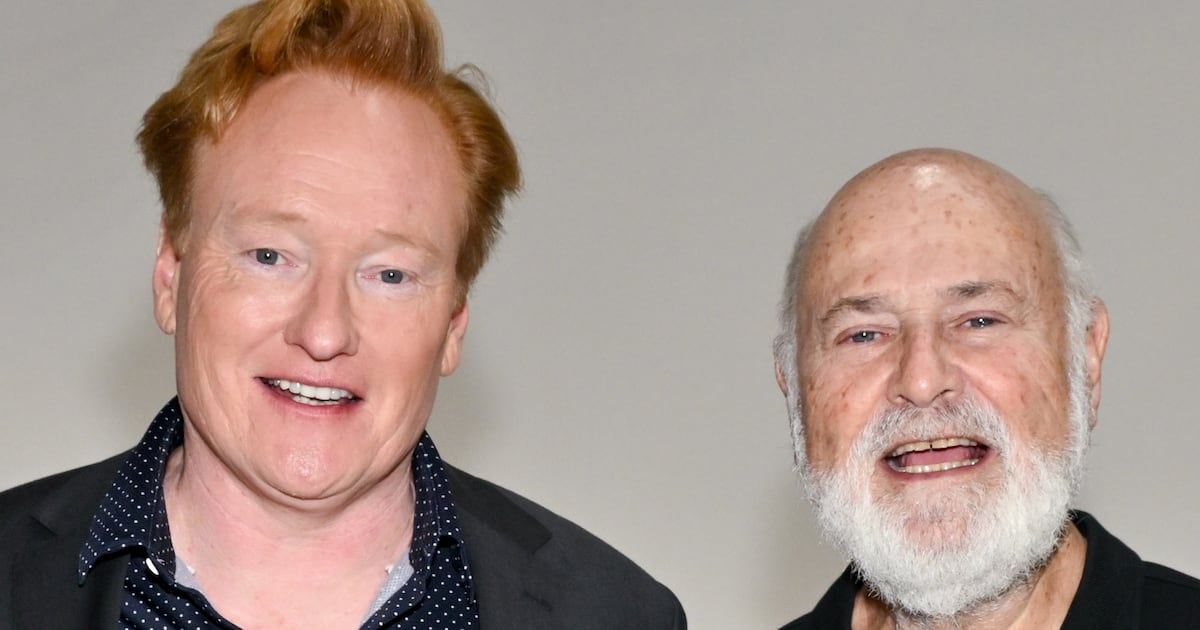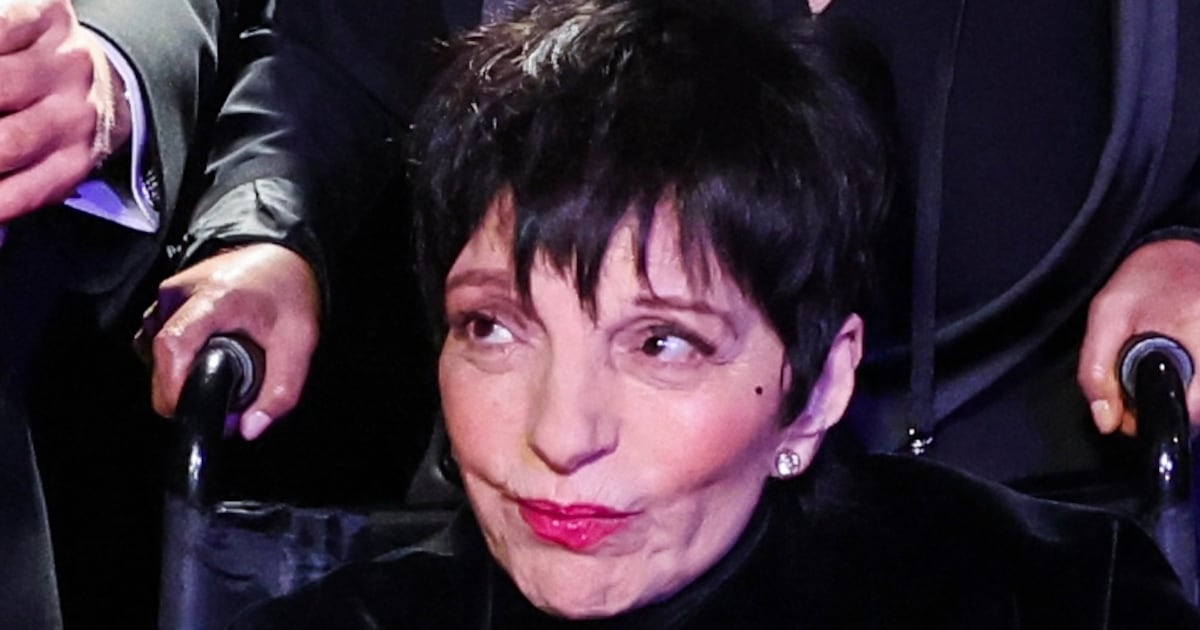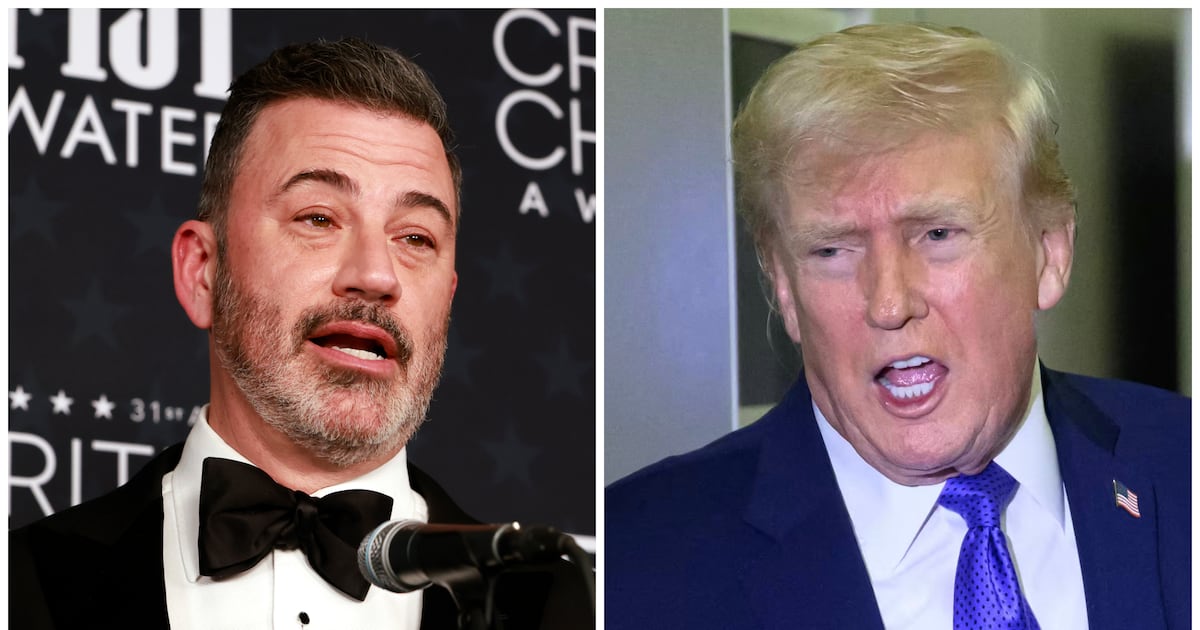Few movies have aged worse than Clerks II, a 2006 sequel that rehashes the nerdy pop-culture banter of its 1994 predecessor even though it had already become outdated by the time of its release, and which dispenses a steady stream of “edgy” sexual and homophobic jokiness that would be more offensive if it weren’t so embarrassing. To be sure, mores change, but Clerks II is a relic of a barely bygone era in which guys (embodied by Jeff Anderson’s wantonly profane Randall) thought they were transgressively cool by ranting about all manner of obscenities, inappropriateness, and racial slurs. Crude, smug, and—worse still—desperate to push boundaries while simultaneously indulging in squishy man-child bromance, it encapsulates a good bit of what was lame and wrong about the 2000s.
Since Clerks II functioned as a half-assed paean to not growing up, it’s no surprise to discover that Clerks III (Sept. 13, in theaters) is a similarly stuck-in-the-past endeavor. Kevin Smith’s latest entry in his View Askewniverse takes a page from Jay and Silent Bob Strike Back and Jay and Silent Bob Reboot by taking a self-conscious detour into navel-gazing. It’s an idea that’s as tired as Smith’s trademark flat visual compositions, Star Wars chitchat, maudlin melodrama and wannabe-raunchy humor, although at least there’s very little of the verbal ugliness that defined his franchise’s previous chapter. Instead, the focus is on moviemaking—in particular, convenience store workers (and now owners) Dante (Brian O’Halloran) and Randall’s efforts to make a feature film about their lives (which, of course, turns out to be the original Clerks).
The impetus for this project is Randall’s near-death experience courtesy of a heart attack, which makes him realize that his life is going nowhere and he has to do something meaningful with the time he has left—this despite the fact that Clerks II climaxed with him speechifying about the greatness of working at the Quick Stop. Considering his tenure at RST Video, the rental store that’s now been converted into a weed shop operated by perpetual delinquents Jay (Jason Mewes) and Silent Bob (Smith), Randall decides that he’s got the same qualifications to make a movie as Quentin Tarantino famously did, and in a single night, he pens a 168-page script called “Inconvenience” that’s based on his and Dante’s retail careers. Randall has made himself the nominal Luke Skywalker and Han Solo of this saga and relegated Dante to peripheral supporting player, which riles up the forever-goateed Dante, albeit not enough to stop him from serving as producer and hustling up financing from his ex-fiancé Emma (Jennifer Schwalbach).
While they’ve both crossed the fifty-year-old threshold, Dante and Randall are the same characters they were in Clerks, endlessly groaning about their 9-to-5, debating Star Wars, and bickering like an old married couple. Randall is the narcissistic prick who doesn’t care about rubbing anyone the wrong way, and Dante is the disaffected sad sack—a condition exacerbated by the death of Becky (Rosario Dawson), the expectant mother of his child, who apparently perished in a drunk driving accident shortly after they decided to get hitched at the conclusion of Clerks II. That thread culminates here in a finale of such unearned weepy bathos that it’s hard to believe he’s the same artist who infused the first Clerks with its sharp, ramshackle authenticity.
Smith’s seminal indie debut wasn’t a perfect comedy, but it was, in its own way, a perfectly realized reflection of 1990s attitude and invention. Clerks III, on the other hand, is merely fan service gussied up with a meta twist in a vain attempt at justifying its own existence. Call-backs to old gags are everywhere, be it recurring jabs at the expense of Elias (Trevor Fehrman), the devout Christian dork from Clerks II who here takes a turn toward the dark side, an introductory game of rooftop hockey, or cameos from a variety of Clerks vets. There’s even a quick nod to the bestiality bit that dominated much of the prior film, although in that instance—as with Randall’s race-baiting rhetoric—Smith shrewdly tones down the nostalgia that otherwise defines these proceedings.
An audition sequence for Randall’s movie allows a collection of Smith buddies to show up to lend support, including Fred Armisen, Sarah Michelle Gellar, Freddie Prinze Jr. and the eternally loyal and game Ben Affleck, who performs an overcooked Boston accent-inflected Robert De Niro impression and, in doing so, once again provides a Smith affair with a momentary spark of comedic clownishness. Over-the-top ridiculousness is also the province of Jay and Silent Bob. The duo’s odd-couple schtick, however, is now so tired – and compromised by Mewes and Smith’s weathered visages, which don’t jibe with their juvenile antics – that their every scene is strained. There may still be an audience for Jay screaming “Snoochie Boochies!” and then, in self-referential fashion, mocking that catchphrase (also found in Randall’s screenplay) for its phoniness, but it doesn’t change the fact that it all comes across as redundant.
Invariably, Clerks III recreates 1994 as best it can, yet to no appreciable end other than to congratulate viewers for being in on the inside joke. References to cryptocurrencies and TikTok, on the other hand, firmly position the action in the present day, just in case anyone couldn’t tell from the appearance of its leads, who now look far too old for this material. Smith eventually resorts to mawkish twists in order to keep the film from totally spinning its wheels, but the gestures are wan stabs at deepening a tale that never needed depth in the first place. Clerks was a slice-of-life snapshot of mundane working-class toil and the types of good-humored slackers who doled out change (and cigarettes) from behind a counter. Feeling something profound about Dante and Randall was never part of the deal, and despite O’Halloran and Anderson’s saccharine performances and Smith’s mushy button-pushing, they aren’t substantial enough to shoulder the weightier notions—about grief, growing up, and finding purpose—with which they’re burdened.
Worse, as still-bickering adults who can’t stop yammering on about Jedis and superheroes, they’re just not funny—a fact so clearly proven by Clerks III that it’s a blessing the film, in its final moments, permanently closes up shop.


